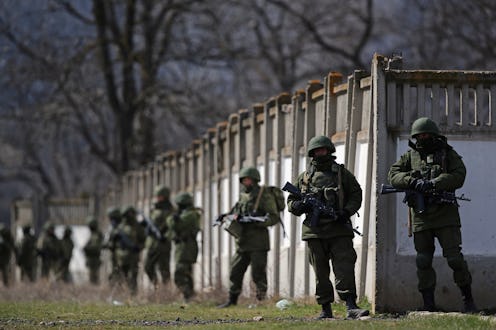News
Russia Turns Crimea Into Special Economic Zone
On Monday, Russia's seizure of the Crimean peninsula continued with the announcement of a special economic zone that would encourage investment in the region. Crimea, of course, is at the heart of a tug of war between Russia and, well, the rest of the world, most of which has condemned the country's unilateral takeover. Russian Prime Minister Dmitry Medvedev traveled to Crimea to meet with local officials and underscore the announcement, which also included a sweetener for the locals: Russia is raising retirement pensions and public-sector salaries in Crimea.
Medvedev explained the business measures in a meeting broadcast live on Russian TV, according to Reuters.
Our aim is to make the peninsula as attractive as possible to investors, so that it can generate sufficient income for its own development. There are opportunities for this. We have taken everything into consideration. And so we have decided to create a special economic zone here. This will allow for the use of special tax and customs regimes in Crimea, and also minimize administrative procedures.
Businesses operating in Crimea may get tax breaks and have to deal with less bureaucracy in the new zone, but don't everybody jump to invest at once. Russia's announcement failed to mention the cons of the business arrangement, like operating in a disputed territory or, say, getting used to the presence of soldiers lined up on the border with Ukraine.
On Monday, Russia said it was withdrawing some troops from the border. In a phone call with Russian President Vladimir Putin on Friday, President Barack Obama asked for fewer troops in the region to avoid provoking a conflict.
Last week, a majority of the United Nations voted to adopt a resolution condemning the takeover of the Crimean peninsula, which called Russia's actions invalid, though it didn't mention the offending country by name.
Russia reportedly threatened several countries into voting against the measure (11 did), or abstaining from the vote (58 did).
